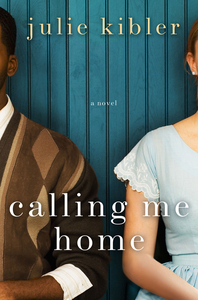Amy Sue Nathan's Blog: Women's Fiction Writers, page 40
April 6, 2013
A Promise, A Win, And A Beach Read
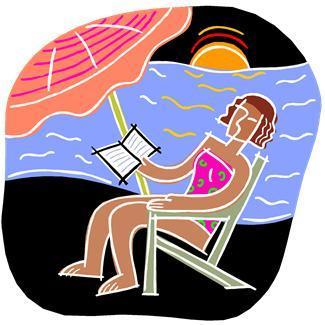 I’m not a competitive person. I met one of my closest friends about twelve years ago during my short-lived attempt at golf, when we were both taking group lessons at a local country club. We’d met before, so when we were paired up for the morning, nothing seemed amiss. Except, this was a competition. Someone had to win. Someone should have wanted to win.
I’m not a competitive person. I met one of my closest friends about twelve years ago during my short-lived attempt at golf, when we were both taking group lessons at a local country club. We’d met before, so when we were paired up for the morning, nothing seemed amiss. Except, this was a competition. Someone had to win. Someone should have wanted to win.
“You can win,” I said. “I don’t really care about winning.”
“Me either!”
We’ve been friends ever since.
I do compete with myself, with assumptions, and with naysayers.
That was, until this morning when I started feeling like a politician. You know, the imaginary honest kind.
THE GLASS WIVES is listed as a Best Beach Read for 2013 on Goodreads and OMG I want to win. I don’t even know if there is a way to win. But I find myself on social media asking for votes.
If you are on Goodreads and so inclined, here’s the link: http://www.goodreads.com/list/show/35381.Best_Beach_Reads_2013
If you’re not on Goodreads or not inclined, that’s fine too. I hope you’ll read THE GLASS WIVES and pass the word the old fashioned way. You know, on Twitter.
Debut authors like me need help from readers. Word of mouth = help. Voting will increase the visibility of THE GLASS WIVES on Goodreads where a gazillion (precise number) of readers gather to learn about books. Learning about an unknown author opens up readers to the possibility of giving the book a try. And that’s all we can ask for right?
So, while I promise, promise, promise NOT to fill your in-box with daily travails of a debut author, as you can see, there’s a lot going on and sharing the journey makes it more fun.
Yep, even more fun than winning.


April 3, 2013
A Debut Author’s Target Practice
If you’re a writer like me, and you are trying to get published like I was (and am, because there are always more books to write and sell), then you know that publishing comes, free of charge, with a barrel full of waiting and disappointments.
But while we’re waiting, and even while we’re waiting to be disappointed, we must get on with our lives. So I did.
One day while THE GLASS WIVES was out on submission with editors, even though I knew I might hear from my agent that day, I headed to Target. What better way to pass the time than to look at dog beds, towels, socks, shampoo, and depending on the store, fresh veggies? Truly! It’s all my divergent dreams within the same four walls (nail polish, lawn art, small, colorful appliances, and hot popcorn), which serve as a procrastinator’s writer’s best coping mechanism.
So there I was, walking the aisles of one of my Target stores (I have three), and my phone rang like I knew it would the way you know that you’ll find the missing ingredient in your cabinet as soon as you buy a new one pound bag. I stopped in the middle of the decorative/throw pillow aisle, off to one side, and answered.
Bad news. An editor had passed on the book. Along with the no came comments that were inconsistent with other things we’d heard from interested and non-interested editors. Was this editor the ONE who was right? Or was this editor the ONE who was wrong? The fact that authors know in their heads that acquisitions are subjective has no bearing on the emotional upheaval that comes with someone telling you your work isn’t good enough for them.
My agent and I chatted. There were kind words and consolation. We were sallying forth. I hung up the phone, checked my list, checked the time, checked around me—and burst into tears.
I wasn’t simply teary. It was rejection waterworks. Unstoppable. Unconscionable. Unbelievable. Then I started coughing to mask the crying. I mean, coughing up a lung is much more preferrable to crying hysterically when you’re in Target. My literary life passed before my eyes, lost in the cotton and silk, embroidery and tassels. I couldn’t see a future amidst the fluff.
I don’t remember what was in my cart (no throw pillows, they now give me nightmares) but know I went straight for the check out and drove home. Lesson learned. When waiting for a call from your agent, my best advice is to renege on your responsibilities and stay the hell home. Or at least carry tissues so you don’t have to open the rolls of Charmin and say, “Oh, it’s allergies, really,” to every shopping, staring stranger.
Needless to say, not long after my “unfortunate Target incident,” that same novel sold to the right editor at the right publishing house—Brenda Copeland at St. Martin’s Press.
And on May 14th, THE GLASS WIVES will be available, DRUMROLL PLEASE…in Target stores.
Bullseye.


April 1, 2013
Author Nicole Baart Says Women’s Fiction Is Raw, Honest, Soulful, And Can Make You Catch Your Breath
In a recent interview someone asked me about authors I admire. Of course, I wasn’t about to name names. My answer was simple. I admire authors who seem to be doing it all, who give back in some way or another. I admire authors who aren’t all about their books all the time, even though we all know how important it is to talk about books. I admire authors who seem to realize that in order to get something out of a community of writers or neighbors or friends or family, you also have to put something into it. And those are things author Nicole Baart understands and lives. With the release of SLEEPING IN EDEN, Nicole’s sixth novel, she shares her insights and experience and her thoughts on women’s fiction and how she lives her very busy, amazing life.
Please welcome Nicole Baart to Women’s Fiction Writers!
Amy xo
Author Nicole Baart Says Women’s Fiction Is Raw, Honest, Soulful, And Can Make You Catch Your Breath
 Amy: Hey, May-pub-sister! Recently you mentioned to me how exciting it is to have a book published. What is the most exciting part to you? How do you think we, as writers and authors, can remember to enjoy it all amidst the noise?
Amy: Hey, May-pub-sister! Recently you mentioned to me how exciting it is to have a book published. What is the most exciting part to you? How do you think we, as writers and authors, can remember to enjoy it all amidst the noise?
Nicole: I love books! I love reading books! I love writing books! I love holding, smelling, and browsing books! Honestly it still stuns me that I get to live my dream and write real, live books that real, live people read. Somebody pinch me!
The truth is, it’s all exciting to me… from concept to edits to finally holding the finished book in my hands. But if I had to pick just one part, I’d say the most exciting part for me is getting my first reader email. Hopefully lots of people will read my book–some will like it, and sadly, some will not–but only rarely do readers take the time to connect with the author. At least, in my experience. Reader emails are few and far between, but when I do receive them, it’s like meeting a new friend every time. It’s hard to describe, but it often feels as if that reader has looked deep into my soul and read not just the book but everything I hoped to communicate through it. And that moment of connection, that dialogue that was spurred on by the daydreams and wonderings that compelled me to write the book in the first place, is just priceless.
Amy: Your newest book, SLEEPING IN EDEN, has one of the most compelling covers I’ve seen. Can you tell us a little about the book, and the cover?
Nicole: Thanks, Amy. I absolutely love the cover, and there’s a great story behind it…
Normally I don’t get involved in creating my book covers. I leave that up to the incredibly talented team of graphic artists who make it their business to design gorgeous, evocative, gripping covers. I love all of my covers, and I have some very gifted artists to thank for that. But Sleeping in Eden is a special book. Truly it is. Ten years in the making. Countless rewrites and edits. Major plot changes. And in the time it took to write, I changed just as much as the manuscript. My first son was born. And then I lost three more sweet babies. We adopted our darling second son from Ethiopia, had another miscarriage, had another baby (a third boy!), moved to a different country, started a non-profit organization halfway around the world, and got some wrinkles. (I’d like to say I love those wrinkles, but it’s more of a love-hate relationship.) Suffice it to say, Sleeping in Eden has a very special place in my heart and in my life, and when I finished the final (final- final-final) edits on the book and handed it in, I felt the need to DO something. Pop the cork on a bottle of champagne, sure. But my friends are more creative than that.
One of my dear friends is an artist and photographer (Ellenvelde Photography), and after the final period was set, we spent a whirlwind evening bringing Sleeping in Eden to life. We wanted to capture the mystery, the longing and magic and heartbreak and wistfulness and hurt and hope that is this book. (There might have been some wine involved.) Another friend’s farm was the perfect backdrop, and we shot a couple hundred photos that we hoped conveyed the emotion of the book. I ended up sending ten of those photographs to my editor, and she passed them on to the design team. The end result is the evocative cover of Sleeping in Eden. I think they nailed it.
Want a little sample of what we did? This is probably my favorite picture from our impromptu photo shoot. I think it’s haunting and wistful–a visual summary of the mood I hoped to evoke in Sleeping in Eden.
Amy: What is your writing day like? Do you have a routine? Or more specifically, do you have a routine you stick to? I know you’re a mom, and involved in many things and written many books. How do you get it all done? (No, really, tell us!)
Nicole: I have multiple personalities. No, that’s a lie.
I don’t sleep. Uh, that would never work. I LOVE sleep. I have many minions…? I wish.
Actually, I don’t have a formula for writing or for “getting it all done.” I’m more of a fly-by-the-seat-of-my-pants sort of girl, at least, when I can be. Unfortunately for me, having three sons (and a five-year-old daughter on the way!), a career, and a non-profit organization requires me to have some order in my life.
I write two mornings a week while my older sons are in school and my “baby” (two years old) is at a friend’s house. But that’s not the only time that I write. Honestly? I do most of my writing in my head throughout the day. A scene will come to me, or the way a stranger sips her tea at a coffeehouse will grab my attention, and suddenly the book I’m working on will start writing itself in my head. I keep notebooks with me at all times, and try to jot down any and all ideas that pop into my head. If I have the time, I’ll write entire scenes on the fly. Often in church. Shhh–don’t tell.
As for the rest of it (the kids, the dog, the house, the cooking, the volunteer work, the non-profit, etc.), I have an incredibly involved, helpful husband who actually likes (loves!) housework as much as I like having a full plate. I function best when I have deadlines and lots of stuff to do… I was the girl in school who could hardly sit still, who was always tapping, twitching, moving, and shuffling, and now I guess I’m putting all that restless energy to good use. Retirement sounds like a little slice of hell to me. I like to be doing something. Actually, doing a lot.
Amy: What was your favorite scene to write in SLEEPING IN EDEN?
Nicole: Such a tough question! I could say that I loved writing them all, and though that would be partially true, it would also be a big cop-out. So I’m going to have to say that I really enjoyed writing scenes with Meg in them.
Meg is one of the narrators and protagonists in Sleeping in Eden. One of the things that I love to do when I write is experiment with different points of view and watch how people of unique ages, backgrounds, and perspectives alter the telling of the story. Lucas, a middle-aged doctor in a failing marriage, is one of my narrators. And Meg is the other. She’s a teenage tomboy caught in a forbidden affair with the love of her life. Meg was a blast to write because in many ways she was the girl that I wished I had been in high school: fierce, independent, daring, and strong. She’s not afraid to try new things or follow her heart. I just loved her for her tenacity and spirit, and I thoroughly enjoyed every scene I wrote about her pushing the so-called envelope. My favorite? An entire chapter dedicated to Meg’s brief career in powderpuff football. She plays for a team called the Riot Girls against two other hometown teams: the Pigskin Barbies and the Broken Stilettos. So fun! It made me want to start a women’s football team.
Amy: What is your definition of women’s fiction as a genre?
Nicole: People ask me all the time what sorts of books I write, and I never quite know what to say. I feel like the term women’s fiction has a bit of a bad connotation– like if the book is primarily geared towards women it must be full of fluff and romance and First World problems like smudged fingernail polish or a broken ankle strap on a favorite pair of shoes. Same with chick lit and romance and cozy mysteries. Not that there is anything wrong with reading books full of fluff and romance! I love them from time to time, too. But it irritates me that everything “women’s fiction” seems to get lumped into one big “beach read” pile, and a thick line is drawn between literary fiction and popular fiction.
The truth? So-called literary fiction can be garbage, and I’ve read countless popular fiction (women’s fiction!) books that are raw and honest and soulful, written in gorgeous prose that makes you stop and catch your breath. I think the line is definitely getting very smudgy.
But I guess I didn’t really answer your question… My definition of women’s fiction? Any book that engages the issues that women deal with. I think a more accurate definition of the kinds of books I like to read (and hope to write!) would be book club fiction–the sort of book that straddles the line between literary and commercial and wrestles with relevant, potentially hard-hitting topics that affect us all.
Amy: What is your best advice specifically for writers of women’s fiction?
Nicole: Don’t shy away from the truth of our very complicated lives! I think women are at a remarkable place in history, a time when we are encouraged (forced?) to be incredibly independent and to take on many of the roles and expectations that were previously reserved for men. A lot is expected of us–at home, at work, in our personal lives and beyond. We are supposed to be thin and beautiful, articulate and well-educated, great with children and successful in our professional lives, and yet somehow maintain the down home goodness espoused on Pinterest boards as we make our own jam and sew handmade Christmas presents. It’s exhausting. And it’s a lie that a woman has to fit this new feminist Barbie doll archetype or turn in her second X chromosome. I love women’s fiction books that address these issues head on, and that offer a hint of hope in the midst of the broken pieces of our complex lives. I think the world is longing for honest representations of women battling these misplaced presumptions, and I think we need to take the voice we’ve been given seriously. No more Bella’s and Anastasia’s, please. We can do so much better than that.
 Nicole Baart lives in a small town in Iowa and is the mother of three young sons. After the adoption of her second son from Ethiopia, Nicole discovered a deep passion for global issues and co-founded a non-profit organization, One Body One Hope, that works alongside a church and orphanage in Monrovia, Liberia. An accomplished novelist, she was a 2009 Christy Award finalist for fiction. Visit her website at http://www.nicolebaart.com.
Nicole Baart lives in a small town in Iowa and is the mother of three young sons. After the adoption of her second son from Ethiopia, Nicole discovered a deep passion for global issues and co-founded a non-profit organization, One Body One Hope, that works alongside a church and orphanage in Monrovia, Liberia. An accomplished novelist, she was a 2009 Christy Award finalist for fiction. Visit her website at http://www.nicolebaart.com.


March 27, 2013
Author Ellen Sussman Goes To Bali In Her New Novel And Says Women’s Fiction Authors Should Go Big Or Go Home!
One of the best parts of hosting Women’s Fiction Writers is reading the awesome interview answers before I post them for everyone else. Is that bragging? Oops! Well, it’s true. And so many times the wise words and kind advice hits so close to home. As I’m entrenched in pre-pub craziness for THE GLASS WIVES, I’m reminded by author Ellen Sussman that writers of women’s fiction need to step out the quiet shadows and into the limelight, which many have. And one way to do that is to tackle big stories, whatever they may be. I’m taking that reminder with me every time I sit down to work on new novel!
Ellen is celebrating the release of her third novel, THE PARADISE GUEST HOUSE which is getting rave and starred reviews and I’m honored she’s here today! Please welcome Ellen Sussman back to Women’s Fiction Writers!
Amy xo
Author Ellen Sussman Goes To Bali In Her New Novel And Says Women’s Fiction Authors Should Go Big Or Go Home!
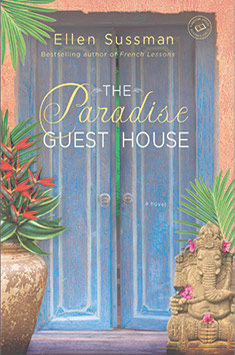 Amy: Congratulations on THE PARADISE GUEST HOUSE! This is your third novel, but as a writer I know that our ideas and books don’t always happen chronologically. When did you first come up with the idea for this book? And what sparked the idea? What were you working on at the time?
Amy: Congratulations on THE PARADISE GUEST HOUSE! This is your third novel, but as a writer I know that our ideas and books don’t always happen chronologically. When did you first come up with the idea for this book? And what sparked the idea? What were you working on at the time?
Ellen: My husband and I visited Bali in 2005, right after the second terrorist attack on that beautiful island. By the end of that vacation, I already had the idea for the novel. I’d create a young American who gets caught in the bombing in 2002 and returns to Bali a year later to find the man who saved her.
But I tucked the idea away, unsure if I wanted to tackle such an ambitious project. It’s funny – I know when a novel idea is good if it won’t let go. That story stayed with me and when I finished French Lessons, it screamed: Write me next!
Amy: THE PARADISE GUEST HOUSE is set in Bali. What drew you to this setting as being the right one for this story?
Ellen: That first trip to Bali began my love affair with the island. I returned a couple of years ago to live there for a month so that I could do the research for Paradise Guest House. (tough research trip!) It’s the combination of paradise and terrorism that created so much dissonance for me. I wanted to understand how the Balinese and ex-pats healed after the bombings in 2002. In addition to learning about the Balinese culture and religion, I had the opportunity to meet with survivors of the attacks as well as family members of the victims. Those interviews were very difficult and so important to my research.
Amy: Do you have a writing schedule or a routine that you follow when you’re working on a novel? What is your favorite place to write? (Mine happens to be sitting on the bed in my office that used to be my son’s bedroom!)
Ellen: I’m a very disciplined writer. I write from 9 til noon every day. When I’m writing a first draft of a novel, I try to produce 1,000 words a day. I’m a firm believer in writing as a “job” – we don’t get much done if we sit around and wait for the muse to whisper in our ear. And I’m lucky enough to have a home office with a beautiful view of our garden.
Amy: Obviously I embrace the term “women’s fiction” but we all know that it is often misconstrued. What is your definition of women’s fiction?
Ellen: The only problem that I have with the term is that novels written by men aren’t categorized as men’s novels! I think the term is generic enough that it doesn’t pigeonhole books as chick lit or beach reads. And yes, most readers of fiction are women.
Amy: What’s your most surprising or unusual advice be for aspiring authors?
Ellen: Go big or go home. Make your characters act – and push them as far as you can. I’m getting tired of quiet stories. I want to read about real drama.
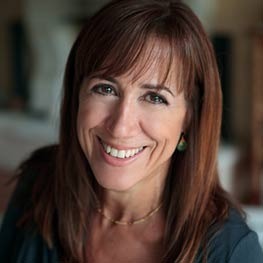 Ellen Sussman is the author of the New York Times bestselling novel, French Lessons, published by Ballantine in 2011. Her first novel, On a Night Like This, was a San Francisco Chronicle Best-Seller. It has been translated into six languages. Her newest novel, The Paradise Guest House, will be published in March, 2013. She is also the editor of two anthologies, Dirty Words: A Literary Encyclopedia Of Sex and Bad Girls: 26 Writers Misbehave, which was a New York Times Editors Choice and a San Francisco Chronicle Best-Seller. She has published numerous essays in anthologies, including The Other Woman, and a dozen of her short stories have appeared in literary and commercial magazines. Ellen was named a San Francisco Library Laureate in 2004 and 2009. She has been awarded fellowships from The Napoule Art Foundation, Atlantic Center for the Arts, Ledig House, Ucross, Ragdale Foundation, Writers at Work, Wesleyan Writers Conference and Virginia Center for the Creative Arts. She has taught at Pepperdine, UCLA and Rutgers University. She now teaches through Stanford Continuing Studies and in private classes out of her home. She has two daughters and lives with her husband in the San Francisco Bay Area.
Ellen Sussman is the author of the New York Times bestselling novel, French Lessons, published by Ballantine in 2011. Her first novel, On a Night Like This, was a San Francisco Chronicle Best-Seller. It has been translated into six languages. Her newest novel, The Paradise Guest House, will be published in March, 2013. She is also the editor of two anthologies, Dirty Words: A Literary Encyclopedia Of Sex and Bad Girls: 26 Writers Misbehave, which was a New York Times Editors Choice and a San Francisco Chronicle Best-Seller. She has published numerous essays in anthologies, including The Other Woman, and a dozen of her short stories have appeared in literary and commercial magazines. Ellen was named a San Francisco Library Laureate in 2004 and 2009. She has been awarded fellowships from The Napoule Art Foundation, Atlantic Center for the Arts, Ledig House, Ucross, Ragdale Foundation, Writers at Work, Wesleyan Writers Conference and Virginia Center for the Creative Arts. She has taught at Pepperdine, UCLA and Rutgers University. She now teaches through Stanford Continuing Studies and in private classes out of her home. She has two daughters and lives with her husband in the San Francisco Bay Area.
You can find Ellen on her website (where you can find links to buy THE PARADISE GUEST HOUSE), on Facebook, and on Twitter: @ellensussman.


March 25, 2013
Author Anita Hughes Rereads And Reflects On Her Outline When She Doesn’t Have Time To Write
From Monarch Beach to San Francisco, author Anita Hughes takes readers deep inside interesting locations in her women’s fiction. Anita joined us last year when her debut novel, Monarch Beach, was published. I hope she’ll join us again in August when her THIRD novel, Lake Cuomo comes out. To say Anita is disciplined is an understatement. Maybe it’s all that California sunshine coupled with her creativity? I don’t know what her secret ingredient is—but I’m glad she found it !
Please welcome Anita Hughes back to Women’s Fiction Writers!
And to all who celebrate, HAPPY PASSOVER, חַג שָׂמֵחַ (happy holiday)!
Amy xo
Author Anita Hughes Rereads And Reflects On Her Outline When She Doesn’t Have Time To Write
 Amy: Congratulations, Anita! It’s pub day! Market Street is your second novel. Can you share with us how writing and publishing Market Street differed from writing and publishing your debut novel, Monarch Beach?
Amy: Congratulations, Anita! It’s pub day! Market Street is your second novel. Can you share with us how writing and publishing Market Street differed from writing and publishing your debut novel, Monarch Beach?
Anita: First, Amy thank you so much for having me back! I love your blog and it’s a pleasure to be here. Writing Market Street was different than writing Monarch Beach because as with most first novels, I wrote Monarch Beach for myself. Market Street was the second in my original two book contract so I had an outline and a deadline – two things I didn’t have with Monarch Beach. I found I liked having both these things very much. I have always had a strong work ethic so knowing I had to write Market Street made it even more enjoyable. (No one in my family could say I was just goofing off writing!)
Amy: Now you’re a multi-published author. How do you write? Outline? By the seat of your pants? A combination? And how do you separate one story from the other when you’re writing one, promoting one, and possibly editing another?
Anita: Now, since I have to provide my editor with an outline, I always write an outline, and again I really enjoy it. I keep a word document of my outline on my phone and I read it quite regularly – it gets me right back in the story and I can reflect on it when I don’t have time to write.
I’m always writing so that is the story and characters that is in my head. The book I am promoting has a life of its own – almost like when you give birth, your children become their own people – so with promoting Market Street I feel like I am sending my characters into the world, but they are very much their own people with their own story. The book I’m working on is still mine to nurture.
Amy: Do you have a favorite character in Market Street? What about this character makes him/her your favorite?
Anita: In my mind I call Market Street a “Cassie and Alexis novel” because I love them both, but I am very pleased that early reviewers such as Kirkus Reviews singled out Alexis for praise. I love her – she is really funny and for some reason she has stayed in my head for a long time.
Amy: You set your novels in beautiful locations—Monarch Beach, San Francisco, and your third novel (coming out in August) is set in Lake Cuomo. Do you visit these places to do research?
Anita: I love setting my novels in beautiful locations – when I was writing Lake Como I felt like I was going there every day. I live in Monarch Beach and lived in San Francisco for many years so I know both places very well. I have only visited Lake Como once as a child, but I adored it. I looked at a lot of pictures online – I wanted to soak up the details and make my readers feel like they are there.
Amy: The term women’s fiction, and some of us who embrace it, take a lot of flack. What are your thoughts on the label women’s fiction? And, to you, what falls under that genre?
Anita: I don’t have a lot of thoughts on labeling because I read everything. If I enjoy a book I will probably read everything by that author – regardless of the genre. I think any books written about women and their choices and dilemmas can fall under the heading: there are so many amazing women’s fiction authors out there and so many great books.
Amy: What’s your best advice for writers of women’s fiction?
Anita: Write the book you want to read. When I get up in the morning I want to get back to my manuscript because I miss my characters and want to find out what happens next. If I feel that way, hopefully my readers will feel the same.
Again, thank you for having me Amy!
 Anita Hughes was born in Sydney, Australia. At the age of eight, she won first prize in a nationwide writing contest sponsored by THE AUSTRALIAN, Australia’s most prestigious newspaper. She graduated from Bard College with a B.A. in English Literature and a minor in Creative Writing, and attended UC Berkeley’s Masters in Creative Writing Program. She lives at The St. Regis Monarch Beach, where she is at work on her next novel. For more information please go to www.anitahughesbooks.com.
Anita Hughes was born in Sydney, Australia. At the age of eight, she won first prize in a nationwide writing contest sponsored by THE AUSTRALIAN, Australia’s most prestigious newspaper. She graduated from Bard College with a B.A. in English Literature and a minor in Creative Writing, and attended UC Berkeley’s Masters in Creative Writing Program. She lives at The St. Regis Monarch Beach, where she is at work on her next novel. For more information please go to www.anitahughesbooks.com.
You can also find Anita on Facebook and Twitter.


March 21, 2013
Debut Author Kim Boykin Listens To Her Characters And Lets Them Tell The Story
I love reading books where I’m transported—and I don’t mean to another planet (although I’ve read some of those books too). What I love about reading women’s fiction is being plunked into the middle of characters’ lives, their worlds, their emotions. Author Kim Boykin brings us down South in her debut novel, THE WISDOM OF HAIR. It’s a part of the country and a culture, that can seem foreign to me—an East Coast Jewish girl living in Chicago. Yet, a good book—good women’s fiction especially—brings us together and reveals our similarities more than our differences. Can’t really ask for more than that!
Please welcome Kim Boykin to Women’s Fiction Writers!
Amy xo
Debut Author Kim Boykin Listens To Her Characters And Lets Them Tell The Story
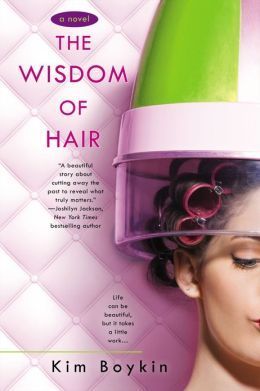 Amy: Congratulations on the publication of your debut novel, THE WISDOM OF HAIR. Would you share with us about your journey to publication?
Amy: Congratulations on the publication of your debut novel, THE WISDOM OF HAIR. Would you share with us about your journey to publication?
Kim: I was TERRIBLE with rejection, but got better. Back in the day when everything went out via snail mail, I HATED going into the post office because the same woman always waited on me. Even during the years I wasn’t submitting, she’d say really loud, “So, did ever you sell that book you were always brining in here?” After I sold the book, I didn’t see that woman for about a year, but when I did, it felt really good to say, “Remember that manuscript you always asked me about, well guess what?”
But I didn’t sell it the traditional way, I went to the NY Pitch Conference in July, got a bunch of editors reading the manuscript and THEN I pitched agents. What a difference your query letter makes when you first paragraph says, “I have these editors reading, and I think I’m going to need an agent soon.” I sold the book that December.
Amy: Your website says you write Southern women’s fiction. What are the most important parts of that Southern culture to impart when you’re writing? What makes the South different from other parts of the country?
Kim: If you lined up all Americans and graded them on the quirkiness scale, you’ll find that southerners are off the charts. Quirky usually translates into interesting reading. As far as imparting culture, I don’t really think about it that way. It happens organically in my characters. Some things people understand and some things they don’t, but they’re still drawn to our stories.
Amy: Do you have a favorite scene in your book or a favorite line or moment? Why is it your favorite?
Kim: Publishers always want to know what your brand is, and, after some thought I realized mine is, women helping women find their happily ever after. It shows in my favorite moment and quote in the book when Zora, the protagonist, is rescued by her BFF, Sara Jane Farquhar, and Sara Jane’s mom.
There is so much in this world I’ll never know, that I’ll never understand, but one thing I know for certain, there is a bond of sisterhood and friendship that overrides all things. It came to me before sunup the next morning as a ready-made rescue with tears and hugs that drew me in, almost suffocating me with its warmth and safety. It came with a knock at the door, after I’d been asleep for a good while. The woman peeked out the little window and opened the door. Sara Jane and her mama came into the room like a whirlwind, with their coats over their bathrobes. They had not even stopped to dress.
We all stood there huddled up, crying, although they had no idea as to exactly why. They were crying for me because I hurt so badly, because they loved me and would never let me bear the pain I felt alone. The sisterhood had driven two hundred and twenty-five miles to my rescue in no time flat, and not even the Rapture itself could have kept them from getting to me.
Amy: Do you have any writing rituals? How about outlining? Do you do it, or do you write by the seat of your pants?
Kim: I’m a morning writer, and I’m the type of writer who hears voices. They aren’t characters, they’re people. I have no control over what they do or say, and if I try to exert said control, it always turns out horrible. I usually just put them together in an imaginary box and see what they do. They teach me, they surprise me. They’re the real storytellers; I’m just the stenographer.
Amy: What’s your definition of women’s fiction?
Kim: To me, women’s fiction is character driven stories, usually about women, that unfold like an heirloom wedding dress. They evoke emotion and readers love to revel in the details.
Amy: What’s your best advice for writers of women’s fiction?
Kim: Never give up and find a group of writer who offer good, honest critique. And if you read any how-to-write books, take in what they say, but listen to your head and your heart. When you read your work out loud, you’ll know what’s right.
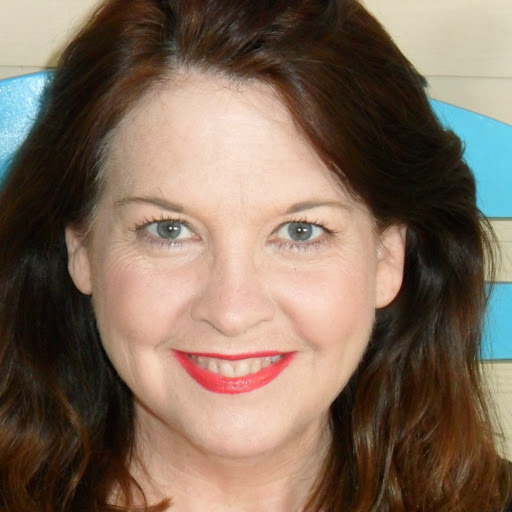 I was born in Augusta, Georgia, but raised in South Carolina in a home with two girly sisters and great parents. So when you read my stuff if there is ever some deranged mama or daddy terrorizing the protagonist, I want to make it clear, it’s not them.
I was born in Augusta, Georgia, but raised in South Carolina in a home with two girly sisters and great parents. So when you read my stuff if there is ever some deranged mama or daddy terrorizing the protagonist, I want to make it clear, it’s not them.
I had a happy, boring childhood, which sucks if you’re a writer because you have to create your own crazy. PLUS after you’re published and you’re being interviewed, for some reason, it’s very appealing that the author actually lived in Crazy Town or somewhere in the general vicinity.
What I did have going for me was two things. One, my grandfather, Bryan Standridge, was an amazing storyteller. He held court under an old mimosa tree on the side of his yard, and people used to come by in droves just to hear him tell stories. He told tales about growing up in rural Georgia and shared his unique take on the world. As a child, I was enthralled, but when I started to write, really write, I realized what a master teacher of pacing and sensory detail he was.
The other major influence on my writing is my ADHDness. Of course when I was a kid, nobody knew what that was. Compared to my older sisters, I knew something was “wrong” with me, so I learned to multitask like crazy and excel at things I did well to make up for things I couldn’t do like math and sitting still.
Today, I’m an empty nester of two kids with a husband, three dogs, and 126 rose bushes. I write stories about strong southern women because that’s what I know. I’m an accomplished public speaker, which basically means I’m good at talking.
If this doesn’t tell you what you want to know, check out my blog for a few laughs and some good stuff on writing, gardening, food, and, of course, hair.
You can find out more about Kim at her website.


March 13, 2013
Author Lisa Wingate Says Women’s Fiction Is Stories About Every Day Lives, Struggles, And Dreams—And They’re Good For Men, Too
How often do we have the opportunity to chat with an author who has written 18 novels? Not very often! Lisa Wingate is a multi-published author who writes inspirational women’s fiction and romance. What does that mean? It means a lot of things to Lisa, but what struck me most is how Lisa wants her readers to be better off for reading her book. Whoa. And yes. Also below you will find some of the most generous aspiring author (and any author) writing advice that we’ve had here on WFW. Lisa is a true gem for taking the time, and having the heart, to share so much with us today.
Please welcome Lisa Wingate to Women’s Fiction Writers.
Amy xo
Author Lisa Wingate Says Women’s Fiction Is Stories About Every Day Lives, Struggles, And Dreams—And They’re Good For Men, Too
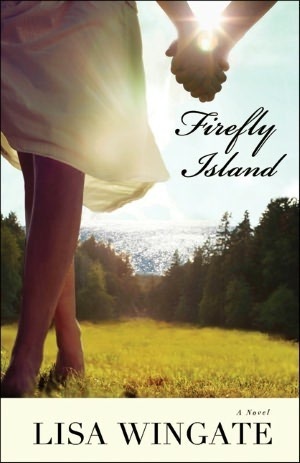 Amy: On your website it says “Fiction That’s Good For the Soul.” What does that mean to you, and what do you want it to convey to anyone visiting your website?
Amy: On your website it says “Fiction That’s Good For the Soul.” What does that mean to you, and what do you want it to convey to anyone visiting your website?
Lisa: My first mainstream novel, Tending Roses, was published in 2001 in the general market by Penguin Putnam. At the time, there was a strong division between general market books and Christian books. Tending Roses was one of the first novels to fall in that middle ground. Selling the book took a little over a year — roughly four months of searching for the right agent, and then about seven or eight months of shopping the book around to publishers. Because it fell somewhere between Christian and mainstream publishing, which were very separate back in the day, that was an interesting process, involving many rewrites and much discussion with several publishers. Eventually, we ended up selling the book to Penguin.
I’ve always wanted to write stories that leave my readers better off than they were at the beginning, books that were uplifting. My characters start out living a life that wasn’t totally genuine for them, question that, and learn some life lessons along the way.
At this point, I’ve been blessed to write twenty novels (18 published and two on the way) for both general market and Christian publishers. I love having books shelved in places where people who have never tried a faith-based novel might give one a try. Eventually, I “branded” my works as “Fiction that’s Good for the Soul” and I love hearing from readers who tell me what the books have meant to them.
My website is designed to welcome new readers and longtime, faithful readers. I like it to be a place for us to connect. Visitors can learn about my books, check for contests, sign up for my e-newsletter, request for me to speak at an event, find writing hints, see what I have bragging rights to (awards, etc.), and check my appearances page to see if we might meet in person at some event. I realize that the tide has turned some toward Facebook, Pinterest, Tweeting, and blogging, all of which I love to the point of addiction. But, my techie and I try to make sure the website gives all the basic information and a way to contact me FMI.
Amy: Can you tell us a little about Firefly Island, your eighteenth novel (Wow! Congratulations!) without any spoilers of course?
Lisa: At thirty-four, congressional staffer Mallory Hale is about to embark on an adventure completely off the map. After a whirlwind romance, she is hopelessly in love with two men–fortunately, they’re related. Daniel Everson and his little boy, Nick, are a package deal, and Mallory suddenly can’t imagine her future without them.
Mallory couldn’t be more shocked when Daniel asks her to marry him, move to Texas, and form a family with him and motherless Nick. The idea is both thrilling and terrifying.
Mallory takes a leap of faith and begins a sweet, mishap-filled journey into ranch living, Moses Lake society, and a marriage that at times reminds her of the mail-order-bride stories. But despite the wild adventure of her new life, she discovers secrets and questions beneath her rosy new life. Can she find answers on Firefly Island, a little chunk of property just off the lakeshore, where mysterious lights glisten at night?
Firefly Island is part real life and part whimsey. Years ago, my life took a similar turn when, through a series of family connections, my husband was offered the chance to leave his corporate job and operate a ten thousand acre ranch in the Texas Hill Country. Like Daniel in the story, he really did walk out of the bedroom (looking quite peaked and somewhat terrified) and say, “I… ummm… think I’ve just been offered a… ummm… job in… Texas.” It was fun now that I’m nearly at the empty nest stage to look back and put some of our early marriage/ young family experiences in this story.
Amy: Your trademark, your “brand” to use today’s buzzword, is that you write inspirational women’s fiction and romance. Why is it important for you to weave these elements into your stories?
Lisa: I write women’s fiction, because I think it’s the most natural thing to write from where you live. I am a wife, and a mom, and a community member, and a friend. The things I experience, and wrestle with, and find joy in, in life, come mostly from these areas.
As far as the romance, what woman doesn’t want romance in her life and in her stories? Everything from love-at-first-sight in Firefly Island, to the rekindling of an older marriage, as in The Summer Kitchen and Never Say Never come into my head and out my pen… well, actually off my computer keys.
Stories are my back fence way of sharing those experiences, investigating them, and working through them. I learn something new from each story. You wouldn’t think the people in your head could teach you things you don’t already know, but they do:-)
Amy: Can you tell us a little about how you get the ideas for your novels? Do they just pop into your head fully formed? Do you sit and mine your thoughts for a good story? And then, do you just start writing or do you outline, make character worksheets, or notes?
Lisa: I come from a long line of Irish storytellers and married into a big Texas clan of storytellers . Rich family legends and tales abound at our holiday dinner tables and are so numerous that some aunts, uncles, and grandparents have recognized themselves in my novels.
And, stories come from waiting in line at Wal-Mart and watching the impatience of the lady in front of me huffing and fuming as the checkout person chats a moment with an elderly man who has lost his prescription service card. What I could do to that fussy, rushed, impatient woman in my story! Stories come from a sweet lady in my booksigning line who said, “There is a story right here in Waco you should know about. Shall I tell you?” My eyes lit up as I thought I’m always looking for a good story. Right then I learned about the Gospel Café, The Summer Kitchen was born, and went forth to inspire other towns to have a similar “restaurant” that serves meals several times a week to anyone who comes. Stories come from a male reader fan who wrote me saying nice things about Texas Cooking (a very pink book, by the way) and offering to help with Internet projects. Over time he went on to share about his long and rich space career and his views on being so often gone during his daughter’s upbringing. Those reflections ended up as J.Norm in Dandelion Summer. And, stories come from… Well, it’s enough to say that stories live everywhere around me in the people I meet, and in my mind.
When a good one pops up and I get excited about it, I write a paragraph in my little notebook or dictate a memo or email to myself. There are always some stories working their way to the back burner and some that keep worming their way to the front. I might have to accept at some point that I may never write them all. ;o(
The tough part is those rare days when the computer screen is a blank slate, I open my notebook, and I’m supposed to write that synopsis and first couple of chapters for my editor. Which story? It will be the one I’m most excited about at that point and that has ‘gelled’ in my mind. I may need to find a consultant or do some research for details, but I’ll start meeting my characters on those first pages and the story will move along—not always as I first envisioned it, but I can depend on my characters to learn and grow and end in a better place and that makes me happy.
Amy: Women’s fiction comes in all shapes and sizes. What’s your definition of women’s fiction?
Lisa: For me, women’s fiction is anything that deals with every day lives, and struggles, and hopes, and dreams of women. Which is not to say that our stories aren’t fine for men to read too. Some of my sweetest reader letters actually come from men, but I think as women we are natural communicators. We seek to work out our struggles in life by sharing them and by walking through others’ experiences alongside them. In these my modern times, when we don’t get together anymore as our grandmothers did to do our washing and mending and chatting at the back fence as we go through our daily chores, book clubs and sharing the lives of women through story have become a critical element in fulfilling that need for support and sisterhood.
Amy: What is your best advice for aspiring authors of women’s fiction?
Lisa: First, remember that everyone starts out as a yet-to-be-published author. I know it sounds elementary, but don’t attempt to set out into the publishing world until you’re fully ready. In other words, begin by finishing a novel. It’s almost impossible to sell a partial manuscript or idea if you’re unpublished. Polish it and send it out, because as much as we’d like them to, editors won’t come looking in your desk drawer.
Yes, showing your work to the world involves some risk. Don’t take a critique too seriously if you hear it from one person. Editors, agents, friends, and readers are individuals. What works for one may not work for another. If you receive the same comment from multiple sources, consider revising your manuscript before you send it elsewhere. Be tenacious, be as thick-skinned as possible, keep writing while you wait for news. If the first book sells, you’ll be set for a two-book deal. If the first one doesn’t sell, you have eggs in another basket.
If there is a particular area of your writing that seems to be holding you back (action scenes, dialog, description, characterization, etc.) devote extensive study to this area. Seek out conference sessions and online workshops devoted to the topic. Study other authors’ techniques in this area. Don’t just read and admire—dissect, break down, make notes, keep a scrapbook of examples and notes-to-self. Read these notes-to-self when you’re stuck/struggling/editing something that isn’t working.
Watch for overbalance of narrative in your writing. Nothing slows down the pace of a story like huge patches of narrative. Narrative produces pages with big, blocky paragraphs that read slowly, and that tend to “tell” rather than “show”. When possible, work story elements into dialog, action, reaction, and short thought sequences, rather than using narrative. For example, rather than describing the main street of your town, have your character walk down Main, greet a neighbor or two, and reflect on a few random childhood memories of people/places. Be careful that you don’t slide down the slippery slope of having characters engage in meaningless chatter designed only to dump information to the reader, but always seek opportunities to work details in naturally during character interactions. Remember that body language speaks volumes, too.
Lastly, never marry yourself to one project. Keep creating new material—that’s where the joy is, and if you keep the joy in this business, you keep the magic of it.
And develop a sisterhood around your writing passion. I mean ‘sisterhood’ as a general term—guys can be great supporters also. Be in a book club so you can listen to what others love about the books they read, be in a writers critique group so you can learn from the struggles of others and get help with your stumbling blocks, offer to be an influencer for a few authors who write in your genre, subscribe to some women’s fiction writers’ newsletters and read their blogs, go to conferences and start making agent and editor appointments when you are at that point, start a beta reading team of several discerning readers who will be honest and help you perfect that first novel for submission. If you have a God-given desire to write and a story to tell, then don’t let anything hold you back.
 Lisa Wingate is an award-winning journalist, magazine columnist, popular inspirational speaker and a national bestselling author of 16 books. Her first mainstream novel, Tending Roses, is in its fifteenth printing from Penguin Putnam. Tending Roses is a staple on the shelves of national bookstore chains as well as in many independent bookstores.
Lisa Wingate is an award-winning journalist, magazine columnist, popular inspirational speaker and a national bestselling author of 16 books. Her first mainstream novel, Tending Roses, is in its fifteenth printing from Penguin Putnam. Tending Roses is a staple on the shelves of national bookstore chains as well as in many independent bookstores.
Recently, Lisa’s Blue Sky Hill Series, set in Dallas, received national attention with back-to-back nominations for American Christian Fiction Writers Book of the Year Award for A Month of Summer (2009) and The Summer Kitchen(2010). In 2011, Lisa’s Novel, Never Say Never, won the American Christian Fiction Writers Book of the Year Award. Pithy, emotional, and inspirational, her stories bring to life characters so real that readers often write to ask what is happening to them after the book ends.
Lisa is one of a select group of authors to find success in both the Christian and mainstream markets, writing for both Bethany House, a Christian publisher, and NAL Penguin Putnam, in mainstream fiction. Her bestselling books have become a hallmark of inspirational southern fiction. Her works have been featured by the National Reader’s Club of America, AOL Book Picks, Doubleday Book Club, the Literary Guild, American Profiles and have been chosen for numerous awards.
When not busy dreaming up stories, Lisa spends time on the road as a motivational speaker. Via internet, she shares with readers as far away as India, where her book, Tending Roses, has been used to promote women’s literacy, and as close to home as Tulsa, Oklahoma, where the county library system has used Tending Roses to help volunteer mentors teach adults to read. Recently, the group Americans for More Civility, a kindness watchdog organization, selected Lisa along with Bill Ford, Camille Cosby, and six others, as recipients of the National Civies Award, which celebrates public figures who work to promote greater kindness and civility in American life.
Read a Three – chapter excerpt of Firefly Island on Lisa’s Reader’s page here: http://on.fb.me/Vj5q85
All the places you can find Lisa:
Lisa’s website: www.Lisawingate.com
Twitter: http://twitter.com/#!/lisawingate
Facebook: http://www.facebook.com/pages/Lisa-Wingate-Readers-Circle/132187520154779
Pinterest: https://pinterest.com/lisawingatebook/
Blogging Mondays at: www.SouthernBelleViewDaily.com


March 8, 2013
Winner Announced For Custom Bracelet By Author Julie Kibler!
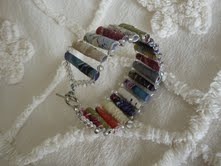
And the winner is:
Mrs. Mommy Booknerd
AKA Emily Lewis
Emily has been contacted by Julie about her custom bracelet made from CALLING ME HOME’s cover art! Just look at those colors. It’s going to be GAWgess! And there’s nothing better than a pretty wrist. Oh right. Yes there is. A good book!
Emily, enjoy and congratulations!
Amy xo


March 6, 2013
Guest Post: When Best Friends Are Also Writing Partners: Liz Fenton & Lisa Steinke of Chick Lit Is Not Dead
Could you write with someone? What if that someone was your BFF? That’s not the premise of a new novel (although it could be) but it’s the real life story of Liz Fenton and Lisa Steinke. They’ve been at it a long time. It’s not easy to write and polish and query and then to get on the path to publication with a NY publisher. But they did it—together!
Could you? Let us know in the comments!!
Amy xo
The road to publication: A bumpy ride, even with your BFF
 We know we’ve been best friends since peg legged jeans were all the rage but couldn’t tell you when we officially became writing partners (we blame the early dementia motherhood brings). We do recall that it took five years, three manuscripts and all kinds of patience to finally get a publishing deal (cue happy dance). It was our third novel, THE TOAST that teamed us up with our dream agent, Elisabeth Weed, and got us a publishing deal with Atria Books/Simon & Schuster. It also solidified for us that there must, in fact, be a publishing God (otherwise known as Greer Hendricks).
We know we’ve been best friends since peg legged jeans were all the rage but couldn’t tell you when we officially became writing partners (we blame the early dementia motherhood brings). We do recall that it took five years, three manuscripts and all kinds of patience to finally get a publishing deal (cue happy dance). It was our third novel, THE TOAST that teamed us up with our dream agent, Elisabeth Weed, and got us a publishing deal with Atria Books/Simon & Schuster. It also solidified for us that there must, in fact, be a publishing God (otherwise known as Greer Hendricks).
Journeying down the very rocky road to publication with your best friend is a lot like taking a road trip with her. It starts out great—the music’s blasting, the wind’s flowing through your hair (think: Thelma and Louise, but without the driving off the cliff part) and the road ahead is full of limitless options. But after being cooped up together in a small space for too long and eating way too many Slim Jims (true story!) you definitely need to take a break!
But despite getting on each other’s nerves from, ahem, time-to-time, there’s no one like your oldest pal to navigate those bumps with you. She can be the ultimate therapist when you cannot read one more rejection letter especially when it’s written to Mr. Fenton and Mr. Steinke (another true story!) and she’s the best cheerleader when you write something that doesn’t suck.
We’ll never forget the first time an agent requested the full manuscript of our first novel. We jumped up and down, drank champagne and started mentally spending the money we’d get for our advance. So when the prospective agent rejected it a week later, asking why the hell our characters were always SCREAMING at each other, it was a major letdown. (In his defense, he was right—we did have a rather upsetting exclamation point problem back in the day.)
Undeterred, we soldiered on, querying our faces off for more than a year. We got painstakingly close to getting an agent—but the tide was starting to turn on chick lit and we had written a campy and somewhat inappropriate novel. (Liz cringed a few times when she reread it recently.) Write something more serious! The agents challenged. So we picked each other up off the floor and wrote a manuscript about a woman who regrets leaving her husband. See, agents? We can be serious! We can tackle topics like divorce, custody, regret and sadness! But we came up short—again.
The good news? After writing two manuscripts we learned a lot of valuable lessons about ourselves and about our writing (don’t overwrite, don’t create secondary male characters that are more cardboard cut out than human and don’t overuse the F word). The bad news? We weren’t sure we wanted to go through the process of writing another one that might not get published. But Lisa wouldn’t be deterred—she forced, ahem, persuaded Liz to give it one more try. This time, we decided to write from the heart instead of trying to predict what agents and publishers would want. And we think that decision made all the difference.
Despite the bumps—make that potholes—in the road to publication, it’s been a journey we’d take all over again because it’s made us closer than ever before. (There’s something sweet about sharing this experience with someone who knew you when you had a unibrow…).
 Liz Fenton & Lisa Steinke have been best friends for over 25 years. They co-created Chick Lit is not Dead in 2009 to celebrate books women love and to have a place to talk shit about reality TV stars. Their novel, The Toast, about two childhood best friends who switch bodies at their twenty-year high school reunion, will be published by Atria/Simon & Schuster in early 2014.
Liz Fenton & Lisa Steinke have been best friends for over 25 years. They co-created Chick Lit is not Dead in 2009 to celebrate books women love and to have a place to talk shit about reality TV stars. Their novel, The Toast, about two childhood best friends who switch bodies at their twenty-year high school reunion, will be published by Atria/Simon & Schuster in early 2014.


March 4, 2013
Author Priscille Sibley Says To Write Your Heart Out
You won’t be surprised to learn that I met Priscille Sibley on Backspace. You might be surprised to learn I read her novel when it had a different title and before Priscille had her current agent! How exciting it was for me to read it again in its final form. Another exciting thing is to introduce to you THE PROMISE OF STARDUST, which has a male protagonist (OH NO) but is clearly being marketed as women’s fiction (TRUE)! It’s was a real treat for me to ask Priscille questions about her novel and her process and to learn new things after knowing this author for so long. Priscille is also one of my Book Pregnant friends!
Please welcome Priscille Sibley to Women’s Fiction Writers!
Amy xo
Author Priscille Sibley Says To Write Your Heart Out
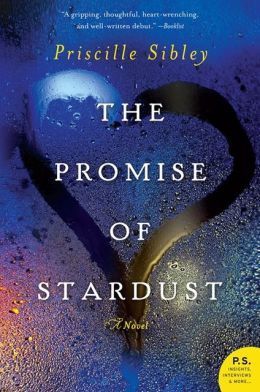 Amy: What is the most important part of THE PROMISE OF STARDUST to you, as its author. Having nothing to do with its plot, what is the book about? Maybe some would refer to that as its theme.
Amy: What is the most important part of THE PROMISE OF STARDUST to you, as its author. Having nothing to do with its plot, what is the book about? Maybe some would refer to that as its theme.
Priscille: Although my story deals heavily with reactions to grief, I believe that ultimately the novel is about hope and resilience. Here is a line from the book: “There is uncertainty in hope, but even with its tenuous nature, it summons our strength and pulls us through fear and grief – and even death.”
Amy: Your novel holds a moral dilemma threaded together, and torn apart, by a love story. What was your favorite part of the novel to write? And I know that doesn’t mean it was the easiest.
Priscille: The backstory was more fun to write, lighter, essential to leaven the main story. About a quarter of the book’s chapters occur in the past. Elle is alive and healthy in those chapters, and Matt is much happier. After her accident, he is grieving. It was painful to climb into his head some days.
Amy: Can you tell us a little about your journey to publication, and perhaps the most surprising part of that journey?
Priscille: I am an unlikely writer. I didn’t study literature in school. (I have a BSN in nursing.) I was very fortunate that once I did start writing, I quickly discovered a number of online writer communities. I found a nurturing critique group. That said, I made plenty of blunders, too. After a couple of years, I realized my first manuscript contained fatal flaws. I put it away and started fresh with a new idea. A year or so later I found a literary agent to represent me. Alas, manuscript number two didn’t sell. My first agent and I parted ways, while I was polishing my third manuscript. By the time I was ready to query The Promise of Stardust, I had a much better idea of what I personally needed from a literary agent. Fortunately, I was really blessed when my manuscript resonated with an agent who fit my new description. With her insights, I dug in and made more revisions. When she sent it out to publishers, it luckily found several interested editors and a home at William Morrow, an imprint of HarperCollins.
Amy: Do you have a favorite character in the book? Or is that like asking you to pick a favorite child?
Priscille: Having spent an entire book inside Matt’s head, he should be the one I favor right? I love him. I admire his devotion to Elle. He is flawed and I don’t think he completely sees himself or the situation clearly, but I like the way he loves her. I also love Linney and Elle. I even liked Adam (hush, don’t tell Matt.)
Amy: Even though your protagonist is Matt, who is clearly not a woman, you’ve mentioned that it’s thought of as women’s fiction. What is your definition of women’s fiction and how do you feel about your novel being considered part of that genre?
Priscille: Clearly. Matt is a Matthew and not a Matilda. I chose to write the novel from his point of view somewhat reluctantly, but Elle, his wife, has suffered a horrible brain injury. She is in a persistent vegetative state. So to tell their story, I climbed into his head, determined to make him authentically male. By most definitions, women’s fiction is about a woman’s journey. More and more I realized the story was about Matt, even though his focus is very much on her. I think the main reasons people describe TPOS as WF is that Elle is pregnant. Babies are still women’s turf. Moreover, The Promise of Stardust is an emotional story. (I keep hearing reports about tissues, and I’m never quite sure how to respond to that.) Author Keith Cronin, who has been here at Women Fiction Writers, said something women’s fiction being about the emotions conveyed in the story. I truly wish I had the quote because I think he nailed the definition.
Amy: What is your best advice to aspiring authors of women’s fiction?
Priscille: Write your heart out. Really, put your heart in there. Take something that troubles you or resonates and turn it into something someone else can feel.
Amy, thank you so much for having me. I love this blog!
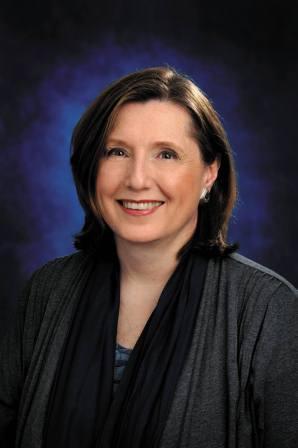 A few people always know what they want to do when they grow up. Priscille Sibley knew early on she would become a nurse. And a poet. Later, her love of words developed into a passion for storytelling.
A few people always know what they want to do when they grow up. Priscille Sibley knew early on she would become a nurse. And a poet. Later, her love of words developed into a passion for storytelling.
Born and raised in Maine, Priscille has paddled down a few wild rivers, done a little rock climbing, and jumped out of airplanes. She currently lives in New Jersey where she works as a neonatal intensive care nurse and shares her life with her wonderful husband, three tall teenaged sons, and a mischievous Wheaten terrier.
Please visit Priscille’s website or follow her on Twitter @PriscilleSibley.
Read Big Girls Don’t Cry by Priscille on The Book Pregnant Blog.


Women's Fiction Writers
- Amy Sue Nathan's profile
- 543 followers




